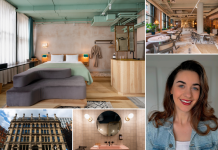Choosing student accommodation is exciting but also nerve-racking.
When the time comes to choose between student housing, private accommodation, university halls, off-campus student housing, living with fellow students or having your own flat, it is no wonder it is both exciting and overwhelming.
While the basics such as location, rent, and room size are the initial checkboxes, there’s a myriad of other factors that can significantly impact your student life, well-being, and overall university experience. In this guide, we delve into what you should consider when selecting student accommodation in the UK, beyond just the essentials.
Moving to university is a landmark moment in many young adults’ lives, bringing with it the promise of new friendships, challenges, and learning opportunities. One of the first steps in this journey is finding the perfect student accommodation, a place where you’ll laugh, study, and perhaps even shed a few tears. While the basic criteria like affordability, proximity to the university, and security are crucial, they only scratch the surface of what can make a student home truly conducive to living and learning.
Study Locations and Academic Environment
The choice of student accommodation should also take into account the nearby study locations and the academic environment. Access to diverse study spots like university libraries, local cafes with Wi-Fi, public parks for outdoor reading, and quiet public spaces can significantly enhance your academic performance and offer a much-needed change of pace from your usual study setting.
For instance, students considering university accommodations in cities like Oxford, Edinburgh, Glasgow, Manchester, or student accommodation in Falmouth can benefit from the rich mix of historical libraries, modern cafes, and serene parks. Each city offers its unique blend of academic and leisure spaces that cater to various study preferences and disciplines, contributing to a well-rounded university experience.
This variety ensures that students can find the perfect spot that resonates with their study habits, whether they thrive in the silent ambiance of a library, the gentle buzz of a café, or the natural calm of a park. The proximity to such versatile study environments from your accommodation can not only boost your productivity but also encourage a healthy work-life balance, making your university years more fulfilling and less stressful.
Safety and Security
Your peace of mind is paramount, so look for accommodations with secure entry systems, on-site staff, and perhaps even security personnel. Knowing that you’re returning to a safe environment each day will ease both your mind and those of your loved ones.
Lifestyle and Amenities
Consider the lifestyle you envision. Do in-house gyms, games rooms, and social spaces align with your idea of a balanced student life? These amenities can greatly enhance your university experience, offering opportunities to unwind and socialize.
Academic Support
Your primary reason for being at university is to learn, so your accommodation should support this goal. Look for places with quiet study spaces, high-speed internet, and even on-site academic resources. Some accommodations might offer study rooms or libraries, perfect for group projects or solo study sessions.
Community and Social Life
The people you live with can become lifelong friends. Accommodations that foster a sense of community through organised social events or communal living spaces can greatly enrich your university life. Whether it’s private halls or university accommodation, consider the social aspect of where you live.
Cultural and International Considerations
Choosing the right student accommodation is more than just finding a place to sleep; it’s about finding a community where you feel understood, respected, and at home, especially for international students or those from diverse cultural backgrounds. This section delves into how certain accommodations are better suited to meet these needs through language support, cultural integration programs, and an environment that celebrates multiculturalism.
- Language Support Services: For many international students, adjusting to an English-speaking environment can be challenging. Accommodations that provide language support services, such as English language courses, language exchange programs, or bilingual staff, can make this transition smoother. These services not only aid in academic success but also in everyday communication and integration.
- Cultural Integration Programs: Look for accommodations that offer programs designed to foster cultural integration. These can include orientation sessions that introduce students to the local culture and customs, cultural nights celebrating diverse traditions, and social events that encourage interaction among students from various backgrounds. Such programs can enhance your understanding of the world and help you form a diverse network of friends.
- Multicultural Environment: Choose accommodations that are known for their diverse resident population. Living in a multicultural environment allows you to experience a wealth of perspectives and customs, broadening your cultural horizons and fostering a sense of global citizenship. It can also provide a support network of peers who understand the challenges of adjusting to a new country.
- Religious and Cultural Facilities: For students for whom religion or cultural practices are integral to their identity, accommodations that provide or are close to religious and cultural facilities can be important. This could include prayer rooms, halal kitchens, or spaces for cultural celebrations. Knowing these facilities are accessible can provide comfort and a sense of belonging.
- Advisory and Support Services: Lastly, accommodations that offer advisory services to help with issues specific to international students, such as visa advice, financial guidance, and mental health support with a cultural understanding, can be invaluable. These services demonstrate a commitment to the well-being and success of students from all backgrounds.
Health and Well-being
Your well-being should always be a top priority. Accommodations that are within walking distance to the university, local parks, and fitness centres can contribute to a healthy lifestyle. Also, consider the availability of support services for both physical and mental health.
Practical Considerations
Beyond the flashy amenities and ideal locations, don’t overlook practical matters such as laundry facilities, utility bills, and maintenance support. Knowing how these are managed can save you unexpected hassles and expenses.
Financial Implications
The cost of accommodation extends beyond monthly rent. Be mindful of additional costs like utility bills, internet, and contents insurance. Some accommodations offer all-inclusive rent, which, while potentially higher, can simplify budgeting.
Personal Space and Living Conditions
Your room is your sanctuary. Whether you prefer a bustling shared house or a quiet studio apartment, ensure your accommodation meets your need for personal space and conducive living conditions. Check for the quality of furnishings, natural light, and even the views – these small details can significantly impact your comfort and happiness.
The Bigger Picture
Finally, consider how your accommodation fits into your overall university experience. The proximity to campus activities, public transportation links, and even local amenities like cafes and shops can greatly influence your day-to-day life.
Conclusion
Choosing the right student accommodation is a multifaceted decision that goes well beyond the basics. By considering factors such as security, lifestyle amenities, academic support, community, well-being, practical considerations, financial implications, and your personal space, you’re more likely to find a place that not only serves as a roof over your head but also as a foundation for a fulfilling university experience.







